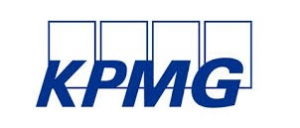
First annual Cooperation of the Year awards recognise the best research projects
The Association for Foreign Investment and the American Chamber of Commerce in the Czech Republic have announced the best joint research projects conducted by universities and the application sphere within the first annual Cooperation of the Year competition.
Minister of Industry and Trade Martin Kocourek presented the top award to the Department of Physical Electronics of the Natural Sciences Faculty at Masaryk University and the company Tonak for the practical application of non-isothermic electrical plasma in the production of felt. The winning project received a prize of CZK 100,000. The second-place award went to the VUT 001 Marabu aircraft project for supporting the use of unmanned aerial vehicles in the civilian sector, which was implemented by the Aerospace Institute of the Mechanical Engineering Faculty at Brno University of Technology and První brněnská strojírna Velká Bíteš, Jihlavan Airplanes and PLASTSERVIS-L from the private sector. Third place was taken by the Department of Cybernetics of the Electrical Engineering Faculty at the Czech Technical University and the company Neovision for their design of a robot for cleaning air-conditioning ducts using dry-ice blasting. This project also received a special prize from the Technology Agency of the Czech Republic, which supported the Cooperation of the Year competition in conjunction with CzechInvest. The partners of the first annual competition were 3M Česko and Hewlett-Packard, while general partnership was provided by Československá obchodní banka, whose headquarters hosted the awards ceremony.
Cooperation of the Year is a competition organised by the Association for Foreign Investment (AFI) and the American Chamber of Commerce in the Czech Republic (AmCham). The purpose of the competition is to reward and promote the best joint projects conducted by universities and the application sphere in the area of research and development leading to innovation. An assessment committee composed of representatives of academic and scientific institutes, the application sphere, the American Chamber of Commerce in the Czech Republic, the AFI, Ministry of Industry and Trade, Ministry of Education, Youth and Sport, CzechInvest and the Technology Agency of the Czech Republic evaluated a full range of criteria when selecting the winners. In the competition’s first year, 24 projects were entered by a total of 12 universities and 27 companies. The committee evaluated primarily factors such as the scope and impact of the projects’ output (utility model, prototype, patent, technology, means of actual use), financial volume, the course of cooperation including the participation of the private entities’ employees in actively carrying out tasks and, of course, the projects’ benefits and impact at the regional and international levels. The winning projects represent one of the means of developing Czech business and a path toward development of the knowledge economy.
“I am pleased that I have the honour of presenting awards for the best applied-research projects. Research and technical education are among my key priorities. The future of Czech industry and its sustained competitiveness lie in sectors with high added value, for which cooperation in the field of research between universities and companies is of fundamental importance,” said Minister of Industry and Trade Martin Kocourek during the awards presentation.
“We would like to raise awareness about the practical impacts of research and development in the form of innovations, and to support the creation of applied results while motivating universities and the application sphere toward intensive cooperation and implementation of joint projects in the area of research and development,” said Kamil Blažek, Chairman of the Steering Committee of the Association for Foreign Investment. “Therefore, we want to continue bringing together universities’ research capacities with potential business partners, companies in the area of venture capital, and to further support technology transfer and the development of spin-offs.”
“Research teams and universities will be decisive in the matter of whether the country will make a successful transition to the advanced knowledge economy. Our goal is to publicise their successes and to encourage more and more companies to invest in research,” said Weston Stacey, executive director of the American Chamber of Commerce in the Czech Republic.
The purpose of the Cooperation of the Year competition is not only to reward projects implemented through cooperation between universities and the application sphere, but primarily to promote such cooperation and raise awareness of successful projects among the public and mass media. A no less important reason for the competition is popularisation of technical fields of study, which have suffered from declining interest in recent years.
The participation of small and medium-sized enterprises is notable among the winning projects. Though smaller firms have their own research capacities, schools have much greater possibilities on the theoretical side that can be used by firms. The result is that the private sector gets an opportunity to utilise research findings at a much lower cost than when investing in researchers and software. Cooperation thus leads to the transfer of knowledge from universities into practice as well as to the use of findings derived from practice in the university environment. Another significant benefit for schools is the infrastructure of the private sector, which can ensure the production of all most necessary components that schools subsequently apply. These are the key factors that will motivate companies and schools to develop cooperation. “The significant involvement of small and medium-sized enterprises in systematic cooperation with universities, which is evident in the projects entered in the competition, indicates the strong innovation potential of such firms. This is necessary not only for the further development of these companies, but also for the further development of the Czech economy,” added Petr Hájek of the Association for Foreign Investment.
“ČSOB supports promising students and helps them to achieve independence and results. Students regularly rate our bank as one of the most desirable employers, so it is logical that we want to support this competition. I think that cooperation between successful companies and universities should be standard in modern society,” says Jiří Vévoda, head of Human Resources and Transformation at ČSOB.
“The special price that we presented in this competition is based on one of the key missions of the Technology Agency, which is to support effective communication and cooperation between research organisations and the application sector,” explains Martin Bunček, member of the board of the Technology Agency of the Czech Republic. “The combination of the top-level knowledge base of academic institutions with the knowledge of market opportunities and the difficulty of proprietary development on the part of companies leads not only to effective use of research and development results, but also to the increased competitiveness of Czech firms.”
The winning projects:
Technology for improving the feltable properties of fibres
With nearly 700 employees in Nový Jičín and Strakonice and turnover of approximately CZK 450 million, Tonak is one of the world’s biggest and most important headwear producers. The company’s cooperation with Masaryk University, specifically Professor Mirko Černák of the Department of Physical Electronics, led to the development of an economical and ecological technology for improving the feltable properties of rabbit-fur fibres. The result is a unique technological process in which plasma is used instead of acid to achieve the matting effect necessary in felt production. The process thus involves a dry method without the use of chemicals. Besides environmental advantages, the technology brings energy savings and a more pleasant working environment for employees, and the resulting felt is of higher quality than that produced using the application of acids. In cooperation with Masaryk University, Tonak is patenting this new process in a number of countries on several continents. This traditional producer of headwear has been in operation for 211 years and currently holds roughly one-third of the world’s felt-hat market. The award was presented by Minister of Industry and Trade Martin Kocourek, First Deputy Minister of Education, Youth and Sport Kryštof Hajn, and Jiří Vévoda, Chief Staff Officer at ČSOB, who is responsible for human resources and transformation at the bank. Representatives of Tonak and the Department of Physical Electronics received a cheque for CZK 100,000 crowns.
Marabu aircraft
Miroslav Křížek, CEO of CzechInvest, and Jan Fara, Enterprise Sales Manager at Hewlett-Packard, presented the award for second place in the Cooperation of the Year competition to the developers of the Marabu aircraft. The award was accepted by representatives of all participating entities – the Aerospace Institute of Brno University of Technology, První brněnská strojírna Velká Bíteš, Jihlavan Airplanes and PLASTSERVIS-L. The plane’s design notably features a modification required for testing new jet engines with an electronic control system. The aircraft’s use will be highly variable, as it will be possible to install control and navigation instruments for unmanned flight and other special equipment according to the needs of future users. The Marabu is the first plane designed and built in the Czech Republic in academic facilities, whereas several representatives of the Czech aviation industry were involved in the project and will participate in future production.
Robot for cleaning air-conditioning ducts
Third place was awarded to a project involving the development of a robot for cleaning air-conditioning ducts using dry-ice blasting. The Centre for Machine Perception of the Department of Cybernetics, part of the Electrical Engineering Faculty of the Czech Technical University, and the company Neovision cooperated closely on the robot’s design and construction. These two partners have been working together for several years. The project is a demonstration of how cooperation with the academic sphere helps a company in the development of its business. Neovision’s current activity can be characterised as custom production of highly specialised high-tech instruments. The robot, called “Jetty”, is the company’s first product with potential for series production and thus offers an opportunity for Neovision’s further growth.
Log In




